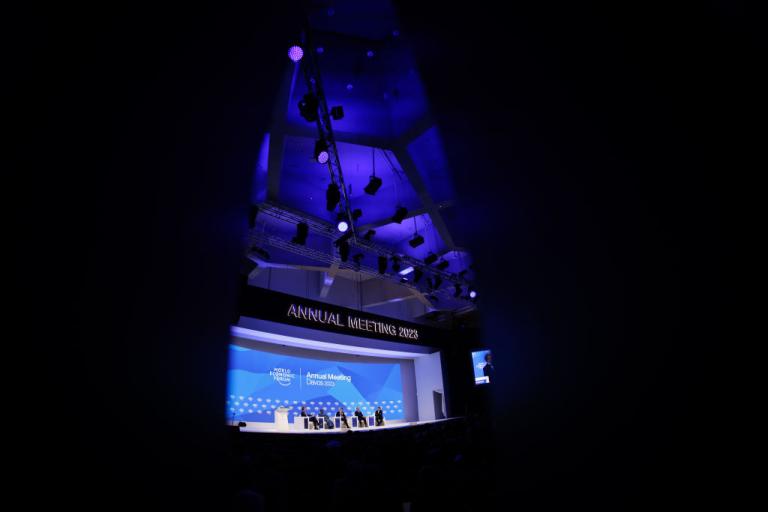
Insights
At the G7, Davos, and Beyond, LGBTIQ Voices Must Be Heard
Region(s)
TOPIC(s)
Type
Commentary
Author(s)
Publish Date
January 19, 2023
Share
Queer communities are accustomed to marginalization. We have grown to expect that in circles of power, our issues and voices will be ignored, marginalized, or at best, tokenized. So it came as a pleasant surprise when the Group of Seven (G7), an exclusive club of the global economic heavyweights, truly centered lesbian, gay, bisexual, transgender, intersex and queer (LGBTIQ people) in its 2022 discussions and committed to concrete actions to advance LGBTIQ inclusion and equality. As Japan assumes the G7 presidency for 2023–and as world leaders meet in different configurations at the World Economic Forum in Davos this week–it is essential that world powers uphold these commitments.
Each year, the G7 brings together the heads of governments and ministers of countries whose economies produce nearly half of global gross domestic income–Canada, France, Germany, Italy, Japan, the United Kingdom, and the United States–meet to discuss common positions related to prominent global issues such as trade, conflict, climate change, and social equality. Leaders and ministers announce their positions by issuing joint communiqués. In 2022, under Germany’s presidency, these communiqués included an unprecedented 21 references to LGBTIQ people.
In the communiqués, the G7 countries recognize that LGBTIQ people face exclusion in the economy, education, healthcare programs, political leadership, and efforts to respond to conflict and violence. The text firmly establishes a broad definition of gender, beginning with the recognition that “harmful gender norms, stereotypes, roles and practices” impact LGBTIQ people. Lesbians and trans women are included in references to women and girls. In fact, the commitment to gender equality explicitly mentions both transgender and non-binary people, a first for the G7.

A panel session on the opening day of the World Economic Forum (WEF) in Davos, Switzerland, on Tuesday, Jan. 17, 2023. (Photographer: Stefan Wermuth/Bloomberg via Getty Images)
The actions promised by the communiques include two notable priorities: First is the integration of LGBTIQ people in foreign aid programs to ensure full access to education and labor opportunities. The second is the call to recognize and respond to disproportionate patterns of violence against LGBTIQ people in Ukraine, Afghanistan, and other conflict situations.
Though the communiques have no enforcement mechanism, they will have an impact on LGBTIQ people globally. The G7 communiques often function as prenegotiations, where nations identify areas of agreement and disagreement as a preliminary step to considering more specific proposals later on. Governments frequently shape their foreign policy based on what emerges from the G7. The extensive acknowledgement of LGBTIQ issues in the 2022 G7 shows that policies related to foreign aid, gender equality, economic development, conflict and peacebuilding should address the needs of LGBTIQ people.
Secondly, advocates can use these statements to hold countries accountable to their commitments. Even in the past few weeks, Outright International has used the G7 statements to insure that G7 governments support LGBTIQ inclusion at multilateral development banks. In both cases, this unprecedented advancement support the global progress toward LGBTIQ human rights.

Take Action
When you support our research, you support a growing global movement and celebrate LGBTIQ lives everywhere.
Donate Now